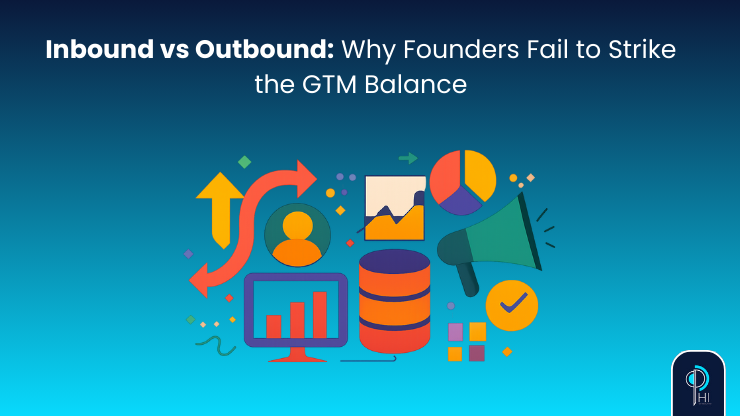AI and Machine Learning (ML) in SaaS: A Game Changer for Startups
- Haris Burney
- Aug 8, 2024
- 3 min read
Updated: Oct 1, 2024

As a startup founder or executive in the SaaS industry, embracing artificial intelligence (AI) and machine learning (ML) is no longer optional—it's imperative for staying competitive. The SaaS market is projected to reach $232 billion by 2024, with AI integration driving much of this growth. Let's dive into how AI and ML are revolutionizing SaaS startups and explore concrete ways to leverage these technologies for your business.
How AI and ML in SaaS are Accelerating Product Development and Innovation
AI and ML are dramatically reducing time-to-market for SaaS products:
Natural Language Processing (NLP): Tools like IBM Watson or Google's Natural Language API can analyze thousands of customer interactions in minutes, identifying trends and feature requests with 85-90% accuracy.
Generative AI for Design: Platforms like Midjourney or DALL-E can create initial UI mockups 60% faster than traditional methods, allowing for rapid prototyping and iteration.
AI-Assisted Coding: GitHub Copilot and similar tools can boost developer productivity by up to 55%, according to early studies.
Case Study: Grammarly used NLP to analyze billions of writing samples, allowing them to offer increasingly sophisticated grammar and style suggestions, growing to over 30 million daily users.
Enhancing Customer Success with Predictive Analytics
AI-powered predictive analytics is transforming customer relationship management:
Churn Prediction: Models can identify at-risk customers with up to 85% accuracy, allowing for timely intervention.
Renewal Forecasting: AI can improve renewal rate predictions by 20-30% over traditional methods.
Personalized Onboarding: Companies using AI for onboarding report up to 50% faster time-to-value for new customers.
Implementing Action: Integrate tools like DataRobot or H2O.ai into your CRM system to start leveraging predictive analytics. Begin with a focused use case, such as churn prediction, and expand as you see results.
Scaling Operations Through Intelligent Automation
Intelligent automation can significantly reduce operational costs:
Chatbots: Can handle up to 80% of routine customer queries, reducing support costs by 30%.
Document Processing: AI-powered tools like DocuSign Insight can reduce contract review time by up to 90%.
Financial Operations: Automation can cut finance team workloads by 43%, according to Gartner.
Real-World Example: UiPath, a leader in robotic process automation, used its own tools to automate 50% of its operations, contributing to its rapid growth to a $35 billion valuation.
Unlocking New AI-Powered Business Models
Innovative AI-centric business models are emerging:
Virtual Assistants: The conversational AI market is expected to reach $18.4 billion by 2026.
Predictive Sales Tools: AI-powered sales forecasting can improve accuracy by up to 82%.
Generative Design: The AI in design market is projected to reach $44.5 billion by 2025.
Emerging Trend: "AI as a Service" platforms like Google Cloud AI and Amazon SageMaker are democratizing access to advanced AI capabilities for startups.
Best Practices for Implementing AI and ML
Start with a Clear Strategy:
Conduct an AI readiness assessment
Prioritize use cases based on potential impact and feasibility
Set clear KPIs to measure success
Build or Buy Decision:
Consider off-the-shelf solutions for common use cases (e.g., chatbots, predictive analytics)
Invest in custom development for core differentiators
Data Quality is Crucial:
Implement robust data governance practices
Invest in data cleaning and preparation (which typically consumes 60-80% of AI project time)
Ethical Considerations:
Develop an AI ethics framework
Ensure transparency and explainability in AI decision-making
Regularly audit AI systems for bias
Talent Acquisition and Development:
Consider hiring a Chief AI Officer or equivalent leadership role
Invest in AI training for existing staff (e.g., through platforms like Coursera or edX)
Explore partnerships with AI-focused academic institutions
The Future is AI-Powered
By 2025, it's estimated that 95% of customer interactions will be powered by AI. SaaS startups that effectively leverage AI and ML will be poised for exponential growth. However, success requires more than just implementing technology—it demands a strategic approach that combines AI capabilities with human insight and creativity.
Key Takeaway: Start small, focus on high-impact areas, and continuously iterate. Remember that AI and ML are tools to enhance your core value proposition, not replace it. By thoughtfully integrating these technologies, you can dramatically improve product development, customer success, operational efficiency, and even unlock entirely new business models.
As you navigate this AI revolution, stay focused on delivering tangible value to your customers. With the right approach, AI and ML can be the catalysts that propel your SaaS startup from a promising idea to a market-leading enterprise.
Ready to Unlock the Full Potential of AI and ML for Your SaaS Startup?
At Phi Consulting, we're a boutique consultancy dedicated to helping startups scale through innovative solutions. Our team of experts specializes in leveraging the power of AI and ML to drive growth, optimize operations, and stay ahead of the competition.
Whether you're looking to accelerate product development, enhance customer success, or explore new AI-powered business models, we can partner with you to create a customized roadmap for success. Contact us today to schedule a consultation and learn how Phi Consulting can help transform your SaaS startup into an industry leader.




Comments